What's happening in the Afghan-Taliban talks
Afghan, US and Nato officials look for a possible negotiated exit to a war now entering its tenth year.
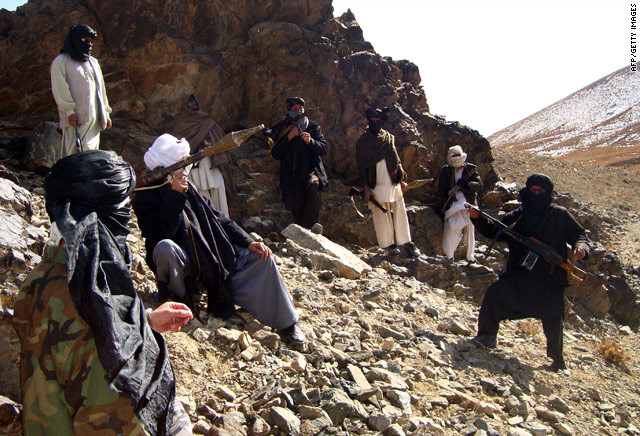
The Taliban themselves dismiss talks as propaganda, and there have been often conflicting media reports about the level of contact with insurgents and who exactly is involved.
Here are some details on what has been reported, what has been said in public and who the key players are.
What has been reported on talks
Much of the flurry over talks began in early October after the Washington Post reported, in part from Berlin, Karzai's government had held secret talks with Taliban representatives. The Post cited Afghan and Arab sources, who said the representatives spoke for the Quetta Shura Taliban leadership based in Pakistan and top leader Mohammad Omar.
Citing various sources, Reuters reported all main parties in the conflict were now considering ways to reach a deal. But the sources, including Nato, Afghan and non-American officials, said the "talks about talks" were preliminary and fragile.
The New York Times, citing mainly Afghan sources, reported "extensive face-to-face" talks between Karzai's inner circle and high-level Taliban commanders who left Pakistan with Nato's help. In one case, the Times reported, Taliban leaders boarded a Nato aircraft. Taliban leader Mullah Omar had been cut out of the talks, it said, but the hardline, al Qaeda-linked Haqqani faction was involved.
What officials say in public
Karzai says there have been preliminary contacts with the Taliban, although no direct negotiations. Afghan government officials acknowledge they have had on-again, off-again contacts with the Taliban at least over the past two years.
Senior US envoy for Afghanistan and Pakistan Richard Holbrooke dismissed reports of secret talks as wildly overblown and has said there was no indication the Taliban leadership wanted to change course. "There is less here than meets the eye," he said. US General David Petraeus said Nato-led forces "facilitated" passage of a senior Taliban commander to Kabul. US officials say that meant logistics or "moving people to meeting locations". Petraeus said contacts were not at the level of negotiations.
US Secretary of State Hillary Clinton called it "a complex effort that is just beginning" and US Defense Secretary Robert Gates said Washington would do "whatever it takes".
British Foreign Secretary William Hague told parliament last week: "We are not remotely at the stage of laying down the terms of a political settlement."
Nato's top Afghanistan representative, Mark Sedwill, said contacts are "channels of communications" with significant Taliban but it was unclear whether they represented factions or wider groups. "It's not even yet talks about talks," he said.
The top U.N. diplomat in Afghanistan, Staffan de Mistura, said he believed a resolution to the war was in sight but that the final stage of negotiations was the hardest. He said the United Nations would help, but that the process must be Afghan-led.
Afghan Taliban spokesman Zabihullah Mujahid rejected media reports of secret negotiations, repeating a long-standing demand for all foreign troops to leave Afghanistan.
The key players
Afghan President Hamid Karzai has long advocated talks with the Taliban. Karzai recently set up a peace council to broker talks and some say he may use it to soften preconditions for negotiations, which include insurgents renouncing al Qaeda and violence and respecting the constitution.
Afghanistan's largest insurgent force, the Taliban were ousted from power in 2001 by US-backed Afghan forces. They now have a stronghold in southern Afghanistan but are spreading their insurgency to other areas.
The most moderate of the main insurgent groups, Hezb-i-Islami, is run by veteran commander Gulbuddin Hekmatyar. US officials say he is looking to position himself for a role in a future government. In March, the group sent a delegation to Kabul for talks, but produced no results.
The militant Haqqani network is seen as closer to al Qaeda and has a long history of ties to Pakistan's spy services. Allied with the Taliban, the Haqqani group operates in southeastern and northern parts of the country, but often works independently of the Taliban, US officials say.
Pakistan, vital to US efforts in Afghanistan because of its contacts with militant groups, whose government says reaching a peace deal will be impossible without its help. Islamabad says it is "part of the solution", but US officials say elements of Pakistan's ISI spy agency back insurgents.
Saudi Arabia, the host of previous talks with the Taliban, has been suggested by Karzai's peace council as a possible mediator. Saudi Arabia was one of the three countries that recognised the Taliban government in the past. Diplomats say Saudi Arabia is being drawn into efforts to reach a settlement despite its reluctance to become involved with militants it once backed.
US officials say Tehran has a role in any negotiated end to the war, despite their worries over other Iranian issues. Iran has wide influence in Afghanistan, especially in the west where the two countries share a border.
Iran denies supporting militants in Afghanistan, but mainly Shi'ite Muslim Iran opposed the strict Sunni Taliban.
President Barack Obama's administration wants to start bringing US troops back from Afghanistan from July next year and the US leader and Nato allies are under pressure at home over the increasingly unpopular war. US officials want negotiations to respect its "red lines," which are that insurgents must renounce al Qaeda, lay down arms and respect the Afghan constitution.

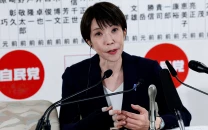
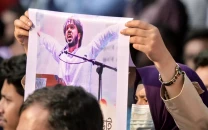
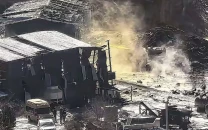
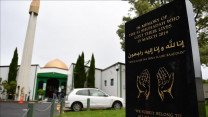
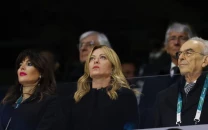
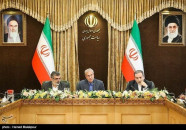












COMMENTS
Comments are moderated and generally will be posted if they are on-topic and not abusive.
For more information, please see our Comments FAQ